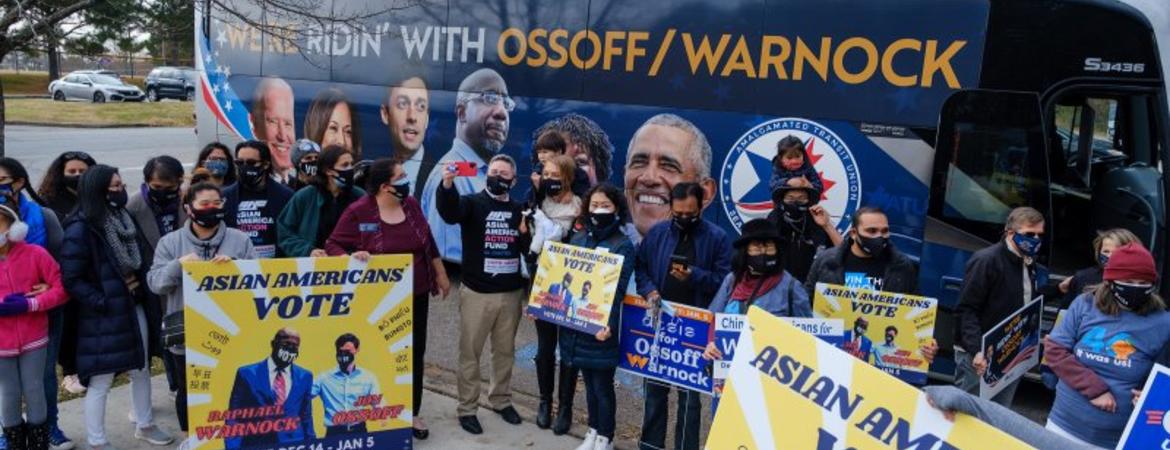Center for Social Innovation

On Nov. 3, Soon Woo Kwon stayed up late watching the news, eager to find out the results of the first American election he voted in. Kwon, who has been living in Georgia for 13 years, immigrated to the United States from South Korea in 2007, and when he finally became a naturalized citizen this year, he was excited to exercise his new right. “Now, I feel like I’m really living in the United States as a citizen,” he says. “I’m just one of the voters, but I was able to share my voice with the people.”
Kwon is one of Georgia’s roughly 140,000 Asian American and Pacific Islander (AAPI) voters who turned out in record numbers in the 2020 presidential election. AAPI turnout in the Peach State nearly doubled this year from 2016, a rate of growth faster than Black, white, or Latino voters in the state. According to exit polls, nearly seven out of 10 of those voters cast their ballots for the Biden-Harris ticket. With President-elect Joe Biden winning Georgia by just about 12,000 votes, their vote helped swing the state for Democrats, observers say.
The surge in turnout was no accident. Politicians on both ends of the political spectrum are waking up to the importance of AAPI voters. They are the fastest-growing racial or ethnic group in the nation’s voting-eligible population. One in five AAPI voters across the United States were first-time voters in the 2020 election. In Georgia, where they comprise about 3% of the electorate, voter organizations and advocacy groups worked tirelessly to mobilize AAPI voters, who say they’ve been ignored by politicians and parties for years.
That effort continues ahead of Georgia’s Jan. 5 runoffs, which will determine whether Democrats take or Republicans continue to control the Senate. In the past 30 years, Democrats have only won one of eight statewide runoffs in general or special elections in Georgia, according to Inside Elections. Voter groups and Democratic campaigns alike are scrambling to ensure that Georgia’s AAPI population turns up to the polls a second time.
AAPI voters are not a monolith; the umbrella term accounts for more than 30 different ethnic subgroups and reflects a wide range in cultural practices, native languages, values and political inclinations. Vietnamese Americans, for instance, are far more likely to lean Republican compared to other Asian American subgroups, according to a survey by AAPI Data, and Indian Americans, after years of being reliably Democratic voters, have started to shift right. Voter turnout rates across different AAPI subgroups vary as well.